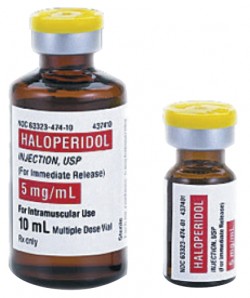Types of Treatment for Chronic Psychosis
Chronic psychosis is a mental condition that is diagnosed by symptom recognition and seems to have no evidence of tissue pathology. It is characterized by disorder of thoughts, hallucinations, delusions and a sense of distorted reality. In these cases, treatment is required.
We can help you find treatment. Call 888-647-0051 (Who Answers?) toll free today.
Some examples of chronic psychotic disorders are:
- Schizophrenia– a type of chronic psychosis that is characterized by hallucinations, hearing voices that are not real, assuming multiple personalities, extreme paranoia, thought distortion, detachment from reality. Schizophrenia is a severe and disabling disorder that is estimated to affect approximately one percent of Americans according to The National Institute of Health.
- Dementia– a term that describes an assortment of symptoms that are caused by different disorders that affect the brain. Those who suffer from dementia have interference in their relationships and regular activities because of intellectual functions that are severely compromised because of this disorder.
- Bipolar disorder– a disorder characterized by irrational mood changes, energy levels, and an inability to complete normal daily tasks. Bipolar disorder is also known as manic depression.
The principle treatment for any form of chronic psychosis is the administration of antipsychotic drugs. These drugs actively block dopamine reception in the brain. In some cases these drugs are accompanied by other drugs to help alleviate other symptoms that are not addressed by the antipsychotic drug. Newer antipsychotic drugs also block serotonin and are therefore more effective in most cases and generally prescribed more often than first generation antipsychotic drugs.
For help finding treatment that works for you call 888-647-0051 (Who Answers?) toll free anytime.
Some examples of antipsychotic drugs (brand names):

Antipsychotic drugs are the primary treatments for psychosis.
- Haloperidol– a first generation antipsychotic drug that was the number one prescribed antipsychotic until the 1990’s. It is noted to have powerful antipsychotic effects with very little evidence of sedation, but also is marked for having serious motor side effects.
- Clozapine-While this drug that was originally marketed in the 1960’s had some devastating effects that caused death, it has been successful where others drugs were deemed failures and is recorded as having unique actions within the central nervous system.
- Risperidone-the first antipsychotic drug to be developed for the purpose of being a dopamine and serotonin blocker
- Olanzapine-a second generation antipsychotic drug that was produced and chemically formulated to mimic clozapine , but has been shown to have a side effect of weight gain.
- Quetiapine-also a second generation antipsychotic developed to mimic clozapine. It has shown little or no side effects.
- Ziprasidone-an antipsychotic drug that blocks the reuptake of both serotonin and norepinephrine. The FDA approval for this drug was slow due to evidence of the potential for cardiac arrhythmia.
Pharmacological help and treatments for psychotic disorders seems to have a broad array of possibilities these days. As research continues and new theses are accepted, hope for those suffering from chronic psychosis is getting better each day.
We understand what you’re going through. Call 888-647-0051 (Who Answers?) toll free to find help anytime.





